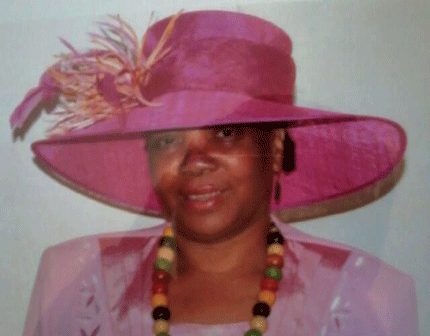
The recent passing away and impending funeral of Esther Ndlovu (née Ndiweni) raises uncomfortable issues about unsung, but critical roles played by women in ensuring that families support social movements and causes.
BY STRIKE MNKANDLA
It has been said of course, quite often, that contributions of women to the making of history had been downplayed or simply overlooked.
Once in a while this man-centric narrative of significant processes, a veritable “his-story”, is shaken by an event such as the passing away of Ndlovu.
In the 1970s there was an unprecedented outflow of many thousands of students mainly to the United Kingdom, North America and to a lesser degree, West African countries like Sierra Leone.
This was particularly intensive in the period 1974 to 1978.
An interesting feature of the arrivals through Heathrow Airport was that many student arrivals in the UK did not have relatives or family friends and had to be “billeted” by families of key officials and more settled supporters of the national union of Zimbabwe students (Nuzis) and pressure groups working on political prisoners, detainees and restricted politicians.
Those who went to Britain in this period will recall the invaluable hospitality of families of Jacob Sigodo Moyo, Josiah T Maluleke, Robias Ngubo, Ben Dlamini, Jameson Mthethwa, James Makoni, Richard Dube and many others.
- Chamisa under fire over US$120K donation
- Mavhunga puts DeMbare into Chibuku quarterfinals
- Pension funds bet on Cabora Bassa oilfields
- Councils defy govt fire tender directive
Keep Reading
I have deliberately left out of the foregoing enumeration of student benefactors the role of the family of Harold Peter Mzila Ndlovu, who was the secretary general of Nuzis.
Ndlovu did not preoccupy herself with attending numerous meetings and campaign events but by virtue of Harold’s position and activism she was the centre of backstopping for the operations of Nuzis.
She received students cold and hungry from the airport and often with no specific limit of when they would leave her house (while their scholarship applications were being processed); they slept in any available space on the carpets and shared the family’s food.
When I look back on the occasion of her passing away I am struck by the fact the she did not complain that earnings from Harold’s job as a teacher and hers as a nurse in those days went quite often to supporting student arrivals and later towards numerous visitors who saw her house as home away from home.
This contribution was recognised in 2013, if I recall the date correctly, when professionals from the US and UK organised a surprise tribute to the Ndlovu family.
What has hit me this week is that even such worthwhile tributes inevitably start with the official entry point, the husband who processed the scholarships and not the one who kept body and soul together, Esther Ndiweni.
The final service for MaNdiweni before her body left London was fittingly attended by 200 or more people, including families like those of Willie Mgqibelo Ncube who shared her experiences, but by many who fondly remember her parental role imposed on her by our history which compelled young people to struggle against the Rhodesian white racist Ian Smith regime’s denial of our right to education as black people.
The author would like to add in parenthesis that Ndlovu’s home was open to students of all political persuasions (parties and opinions), Ndebele, Shona and other ethnic identities from Zimbabwe.
It is a tribute to the Ndlovus that one can identify influential people in all Zimbabwe’s major political parties who experienced her hospitality and support to their work to provide for the country’s students in their struggle for education.
Ndlovu was born on November 16 1946 in Matobo district where she grew up. She attended Kezi Primary School and did Standard 6 at Manyane School, before going to Hope Fountain Mission to train as a school teacher. She taught at Mahetshi School.
In 1965 she married Harold Ndlovu; from this life-long union she is survived by her husband and four children – Lungisani, Zamani, Sifikile and Khonzokuhle.
She left Zimbabwe for Britain in 1969 and lived in London until she passed away on March 17 2015.
Her body arrived in Zimbabwe yesterday and will lie in state this Friday evening at 21 Wotton Crescent, Montrose, Bulawayo.
There will be a church service on Saturday at UCCSA morning before she is driven to Fort Usher, Matopo District, where she will be laid to rest on the same day, April 11. Information on the church service will be available from 0775 306 399 or 09 60702.
Sithi hamba kahle Ndiweni, Mkheswa, Manjola, Untanga zokuselwa, uMadlodlongwana, uMadanga onjengokuthwasa konyaka!
Dr Strike Mkandla (experienced the hospitality of Esther Ndlovu and her family first hand upon arrival in UK from Zambia in 1974).










